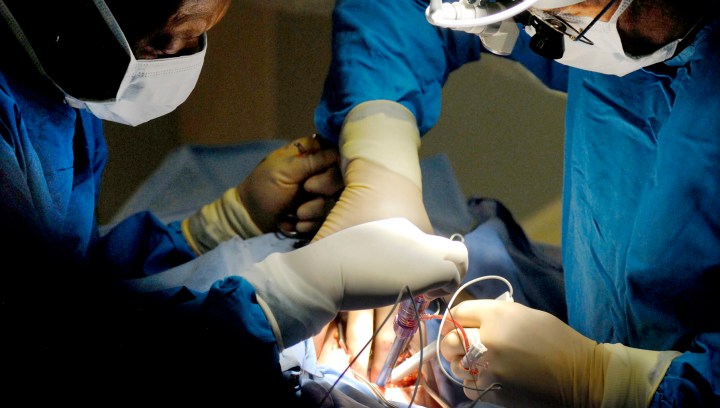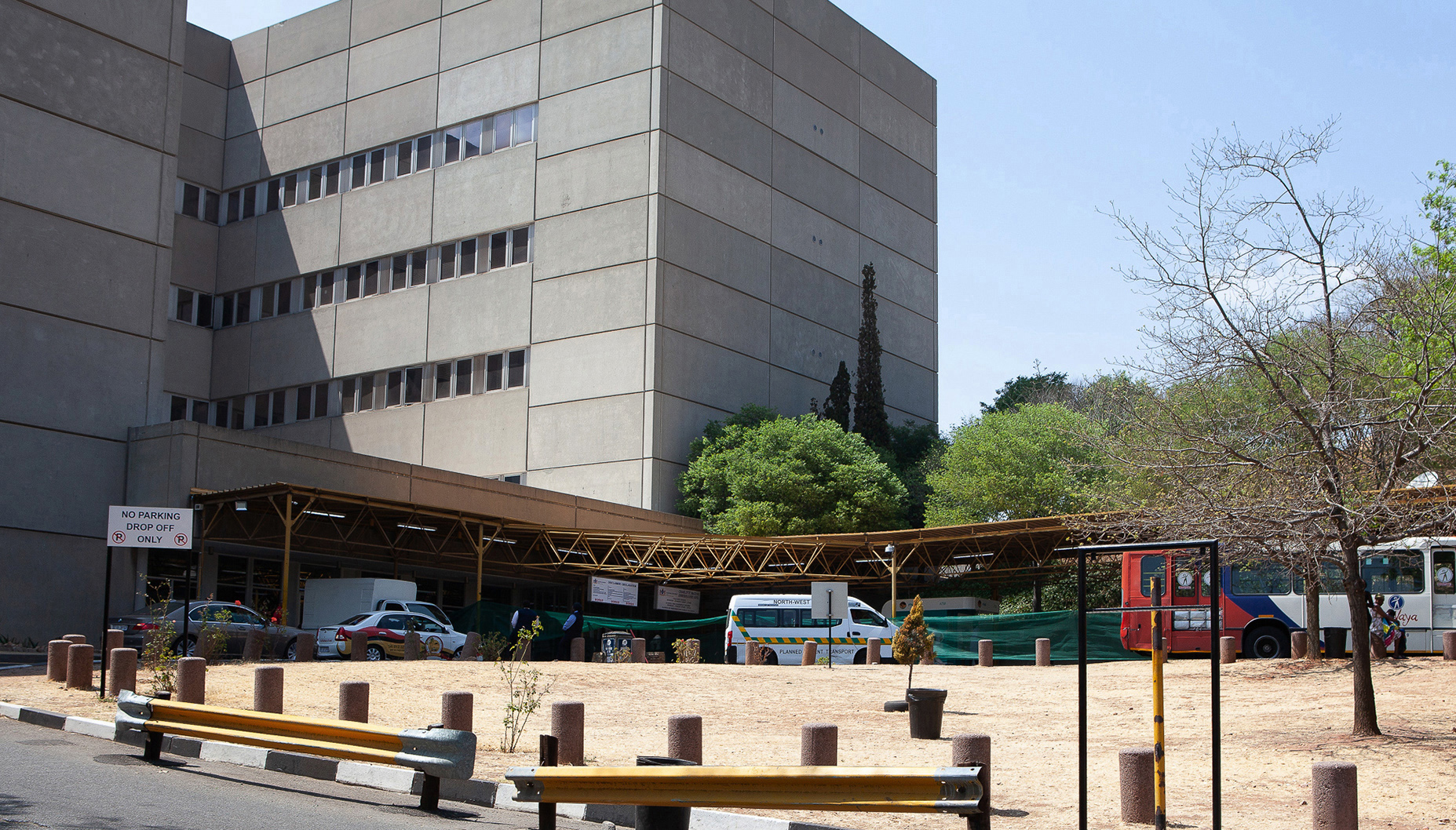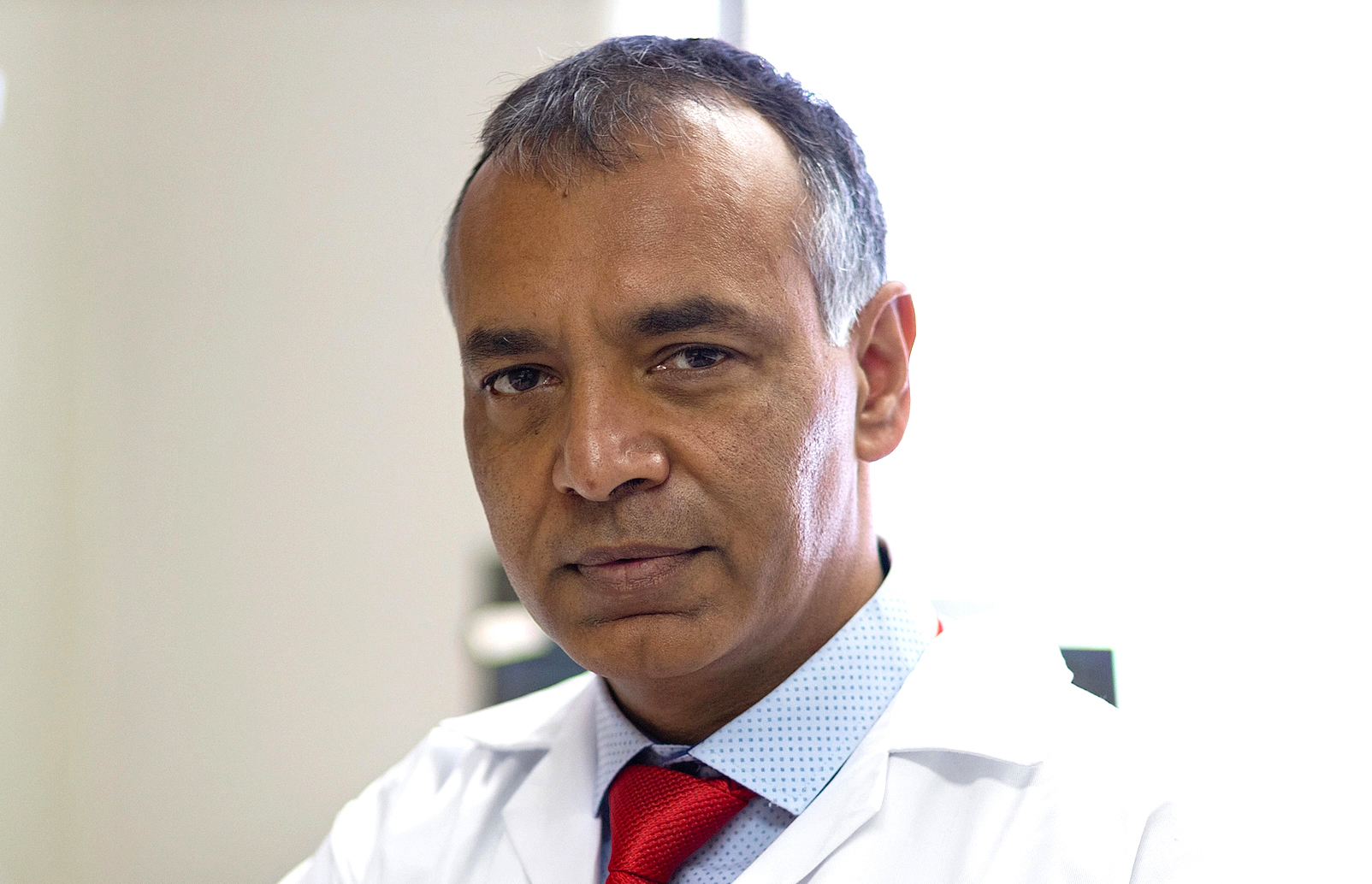POWER CRISIS
Exempt public hospitals from rolling blackouts, health professionals plead

Stage 5 and Stage 6 rolling blackouts have become more frequent and public hospitals are forced to rely on backup generators for hours at a time. These measures often fail to meet the energy demands at facilities, causing delays in treatment and surgeries. The cumulative impact on an already overburdened health system is potentially devastating.
A hospital’s systems cannot be put on hold, even for a minute. They form part of a continuous 24-hour, seven-days-a-week operation. Yet as rolling blackouts ramp up in intensity once more, many public hospitals across South Africa are having to put things on hold, including surgeries, power-intensive scans and meal preparation.
The harms of these stalled processes are cumulative, and — when combined with an already overburdened public health system — potentially devastating.

Dr Aslam Dasoo. (Photo: Supplied)
“You’re facing a calamitous situation here, the effects of which are acute and immediate,” said Dr Aslam Dasoo, convener of the Progressive Health Forum.
He pointed out that many hospitals are already under strain due to ageing infrastructure and equipment. In some places, corruption and maladministration within management and state networks have pushed systems to breaking point.
“You add on top of that load shedding, and people are going through hell in facilities that should be areas of sanctuary and solace for them,” said Dasoo.
Demand for change
On Tuesday, 20 September, Professor Adam Mohamed, the head of internal medicine at Charlotte Maxeke Johannesburg Academic Hospital, started an online petition calling for the relevant departments in the Gauteng provincial government to exempt all hospitals in the province from rolling blackouts. In just two days, the petition garnered more than 34,000 signatures.
Mohamed said rolling blackouts hindered the quality of care that patients received and compromised already strained budgets due to the expense of alternative energy sources.

Charlotte Maxeke Johannesburg Academic Hospital in Parktown, Johannesburg. (Photo: Gallo Images / Papi Morake)
“Everyone might wonder what [hospitals] are complaining about because they have generators,” he told Maverick Citizen. “A generator in a hospital is meant to be a power backup supply, meaning when there is load shedding only the essential places get energy supply.
“Charlotte Maxeke Hospital had its electrical and backup system installed maybe 20, 30 years ago, so if an ICU room has been moved away from where the ICU originally was, it means it’s not backed up.
“I think load shedding is going to get worse — to Stage 6, 7, 8 — and I can tell you in this hospital it’s chaos … as it stands, we don’t know where the financial burden of load shedding is being carried. Is the budget from patient-care money, which compromises healthcare?”
The shadow MEC for health in the Eastern Cape, Jane Cowley, echoed Mohamed’s sentiments and said hospital exemption from rolling blackouts shouldn’t even be a debate.
Cowley estimated that one industrial-sized generator at a hospital could be using about R16,000 to R18,000 of fuel a day during Stage 5.
“Those … generators have at least a 900-litre capacity,” she said. “[They] use 90 litres of fuel an hour, so multiply that by 7.5 hours, and multiply that by the price of diesel … at about R25 a litre.
“I was doing oversight at All Saints Hospital in Ngcobo in early July. Their diesel budget was already used up and they were praying for a top-up, and we know our department is so cash-strapped.
“With a skeletal budget, they might have to approach the Treasury to request funding from elsewhere to fund the Health Department.”
The Eastern Cape Department of Health uses term contracts provided by the National Treasury for the supply of diesel, according to Yonela Dekeda, the spokesperson for the department.
“This enables facility managers to place orders whenever they experience shortages, to avoid power shortages in the facilities,” she said.
Exemptions from rolling blackouts
There are some information gaps as to what it would take to exempt hospitals from rolling blackouts, according to Russell Rensburg, the director of the Rural Health Advocacy Project.
“We know some rural hospitals that have applied for exemption from load shedding … and have done so successfully, but it’s a very burdensome administrative process that can take time,” he said. “So, if they haven’t done it already, we need to figure out how hospitals need to put in these applications and get them done.”
The Rural Doctors Association of Southern Africa recently put out a survey for healthcare facilities that is intended to assess the need for hospital exemption from rolling blackouts across the country.
The legislation of the National Energy Regulator of South Africa does not exempt hospitals from rolling blackouts, said Monique Johnstone, the spokesperson for the Western Cape Department of Health and Wellness. Each healthcare facility in the province is required to have backup generators and sufficient diesel to continue with service delivery during power outages.
Johnstone did not respond to a question about the department’s stance on hospitals receiving exemption from rolling blackouts.
Dekeda told Maverick Citizen that while the situation at Eastern Cape hospitals had been manageable under Stage 3 of rolling blackouts, backup systems had been taking strain under Stage 6.
Visit Daily Maverick’s home page for more news, analysis and investigations
“The department has already started a process to request an exemption from Eskom and relevant municipalities from load shedding at identified facilities,” she said.
There are already five hospitals in the Eastern Cape that are exempt from rolling blackouts, up to Stage 5.
Maverick Citizen contacted the Gauteng Department of Health and the National Department of Health about the need for hospitals to be exempted from rolling blackouts, but had not received a response at the time of publishing.
Backup system strain
With rolling blackouts comes the tendency to delay elective surgery, said Professor Shabir Madhi, the dean of the Faculty of Health Sciences and professor of vaccinology at the University of the Witwatersrand. This is largely governed by the limited availability of theatres and the reluctance of surgeons and anaesthetists to perform procedures during power outages.

Professor Shabir Madhi. (Photo: Supplied)
As a result, the surgical backlogs that exist at many public hospitals worsen.
“That is the biggest knock-on effect we have from the load shedding. In some instances … even without load shedding, there was almost a two- to three-year backlog for some surgical procedures, such as hip replacements, as an example, and all of those procedures are then further delayed,” he said.
The generators that health facilities use are usually designed to deal with acute emergencies of power supply breakdown, said Dasoo. They can maintain basic functionality, such as keeping ventilators powered, but they do not necessarily have the power to support services such as CAT scans or MRI scans.
“Then if you take further disruptions — think about the kitchens, think about the laundries, think about waste disposal — all of these require power, so when all of that is added up, you’re facing an absolute disaster,” he explained.
In the petition, Mohamed said that the UPS batteries in neonatal care wards and other ICUs did not always have enough time to recharge between power cuts. This could be fatal for infants and vulnerable patients.
“The supply of water is also affected during load shedding, which has a direct impact on hygiene and an increase in the spread of infections. The staff morale at a hospital like Charlotte Maxeke [after Covid and the hospital fire] is at an all-time low,” he stated.
Read more in Daily Maverick: “Devastating Charlotte Maxeke hospital fire was an act of arson — police forensic report”
As Stage 5 and Stage 6 rolling blackouts become more frequent, a problem that arises is that the failure of a hospital’s backup systems will place lives at immediate risk, said Madhi.
“People who are, for example, in the ICU … on mechanical ventilation, or a person that’s in the middle of an emergency operation — those sorts of lives can be placed at risk if the backup facilities don’t kick in,” he said.
“The bigger the pressure on the backup facilities, the higher the likelihood that they might eventually at some stage fail.”
Looking ahead
While exempting hospitals from rolling blackouts is part of the short-term solution to the current crisis, there needs to be a more sustainable, long-term plan for taking health facilities “off the grid” and ensuring they have sufficient emergency power supplies, according to Rensburg.
“Load shedding will be with us at least for the next two to three years, if not longer, and there are going to be some serious challenges. And what we need to do is a full-on assessment on what kind of capacity is needed [in hospitals],” he said.
Public health facilities should follow the route many of their private sector counterparts have taken in installing solar energy systems and shifting to a reliance on renewables, recommended Madhi.
“I think it’s high time that the public sector … starts working closely and learning from the private sector as to how best to equip themselves,” he said.
Read more in Daily Maverick: “South Africa could ultimately produce a lot more viable renewable energy — here’s what it needs”
Rensburg told Maverick Citizen that there was a need for greater social solidarity in the approach to solving the problems brought about by rolling blackouts, adding that resources needed to be reprioritised to ensure that those most in need were least affected by the long-term impacts of system failures.
“I think the main thing to drive us [in] that is a narrative of hope that builds on our collective solidarity,” he said.
“I think we all know who’s to blame. We all know our diagnosis of the problem … but I think what we’re short of is really finding solutions to work together as a nation. Eskom alone can’t solve this problem; the government alone can’t solve this problem.” DM/MC



















Comments - Please login in order to comment.